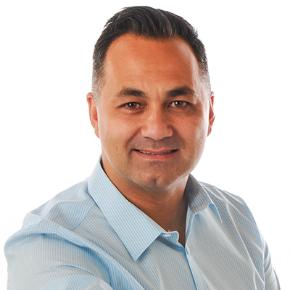Brett’s monthly letter for October 2010
Dear Friend,
“An atheist from Berkeley is here.” The youth pastor’s statement caught me off guard. I was sitting in a church lobby, reviewing notes for a talk I was about to give. My first thought was, “What atheist in their right mind would drive from Berkeley to attend a youth apologetics conference in the Inland Empire?”
Seeing my puzzled look the youth pastor offered more. “His name is Tim. He’s right over there.” I glanced in the direction he pointed and recognized Tim immediately. I had met Tim, a recent graduate from U.C. Berkeley, two years ago on one of our mission trips. He had participated in a couple of our joint events with Berkeley’s atheist student club, S.A.N.E. (Students for A Non-religious Ethos), over the last few years. I hadn’t seen Tim for more than a year and now here he was, attending an apologetics conference where I was speaking.
At the break, Tim made his way to my resource table. “Tim!” I exclaimed. Tim smiled and appeared genuinely happy to see me. Indeed, as he approached I grabbed his hand for a firm shake but additionally, he leaned in for a hug. I was glad to embrace him, realizing this hug was no small gesture. Often, when we imagine interactions between atheists and Christians we envision warfare, not friendship. But despite our opposing views about Christianity, Tim is made in God’s image. Tim is an intrinsically valuable human being deserving dignity and respect, not an enemy to be vanquished.
During the lunch break, Tim sat with me. We shared some fries and he quickly launched into a discussion of the cosmological argument for God’s existence, which another conference speaker had advanced. Tim is a smart guy. He’s well read. He knows science and philosophy. So our exchange was well-informed and lively.
Midway through our discussion, Tim surprised me. “I think there was a first cause to the beginning of the universe.” “What?” I replied. Seeing my disbelief, he quickly added, “I just don’t think the first cause was necessarily God.” I sat forward, eager to engage the issue. “Okay, what are possible candidates for a first cause? What could possibly bring something into existence out of nothing?” We embarked on a lengthy discussion of causation. Tim suggested quantum fluctuations as a candidate, but when I pressed him, he quickly abandoned the notion.
Through our discussion, I realized Tim had trouble giving proper weight to common sense statements because there were always questions he could raise. However, his questions always danced around on the fringe of an issue, preventing him from acknowledging the force of the commonsense notions he actually affirmed. Gently but directly, I addressed this perceived problem. “Tim, I think you suffer from a paralysis of analysis.” I explained, “The ambiguity you find on the edges of an issue shouldn’t stop you from affirming the truth you discover at the core.” Tim didn’t disagree and didn’t get defensive, but nodded approvingly.
Later, during the drive home, I reflected on my conversation with Tim. It had seemed productive. There was genuine warmth between us. I like Tim and he likes me. We had a calm rational discussion about life’s biggest questions. By affirming a first cause, Tim revealed he has made some movement in the direction of theism over the last two years. Hopefully, I was able to give him further reason to think God is the First Cause. But I was also able to direct his steps a bit, helping him recognize the “paralysis of analysis” he struggles with and encouraging him to move beyond his orientation of uncertainty.
Then it dawned on me. I was following Stand to Reason’s Ambassador model. The most effective ambassadors of Christ are those who employ knowledge, wisdom, and character. Tim respects my knowledge and therefore, engages me in discussion. I was able to maneuver in the conversation in a wise, tactical manner, even speaking directly and frankly when needed. But both my knowledge and wisdom were undergirded by an attractive manner—character—that provided the necessary platform from which to speak truth to Tim. It was a stark reminder that our approach at Stand to Reason isn’t merely academic.
And your support not only enables me to be an ambassador, but to equip others with knowledge, wisdom, and character—for the cause of Christ. Thank you for helping me equip a new generation of ambassadors.
Trying to live what I teach,
Brett Kunkle
STR Student Impact

